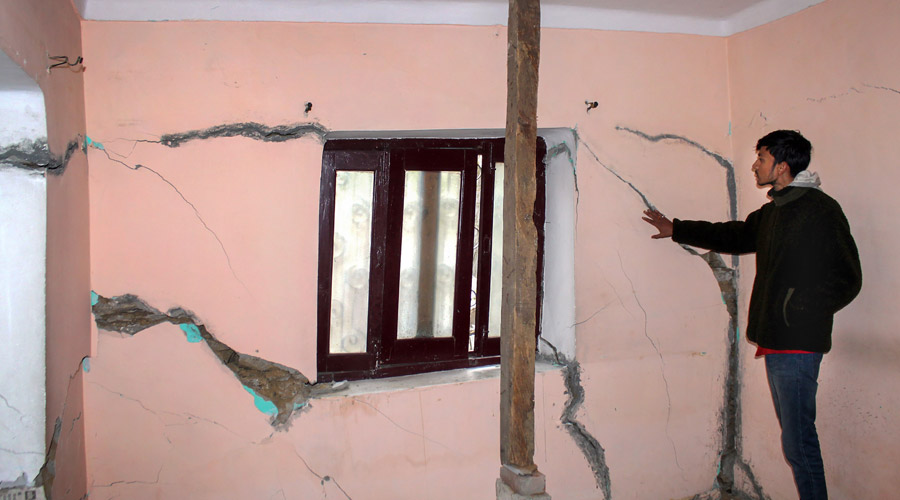The rate of land subsidence has increased substantially in Joshimath since its impact became visible in early January. According to the latest survey by Wadia Institute of Himalayan Geology, Dehradun, the rate of subsidence has become faster in the last few weeks.
“A report prepared by us shows that the sinking of land was going on at a slow pace for the last many months and that was the reason it didn’t damage the buildings in Joshimath initially. The rate increased in early January and started leaving cracks in houses and commercial structures. However, the rate of subsidence has increased substantially at the end of January and is continuing now,” said a researcher of the institute who didn’t want to be identified as the study was still in progress.
“We have also concluded that the primary reason behind the sinking of land is the construction of a tunnel just below Joshimath. The National Thermal Power Corporation Limited is building a hydropower project in the area and the tunnel will be used to draw water from Alaknanda and Dhauliganga,” the researcher said.
The NTPC has denied that its tunnel is passing under Joshimath. Talking to The Telegraph over the phone from Joshimath, social activist Atul Sati said: “There are places in the town where the land subsidence is up to five feet in the last four-five weeks. It was 9.5cm in six months (till December 23, 2022) but it was 5.4cm more between December 24 and January 4. So the land sunk a total of around 15cm in January-end and now it is 24cm. There are also some spots where land has sunk up to five feet and it looks scary.”
Chamoli district magistrate Himanshu Khurana said they had identified the land where the affected families would be rehabilitated.










